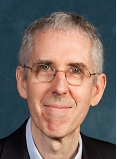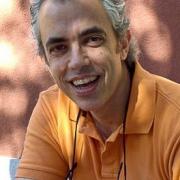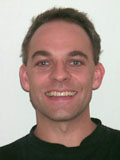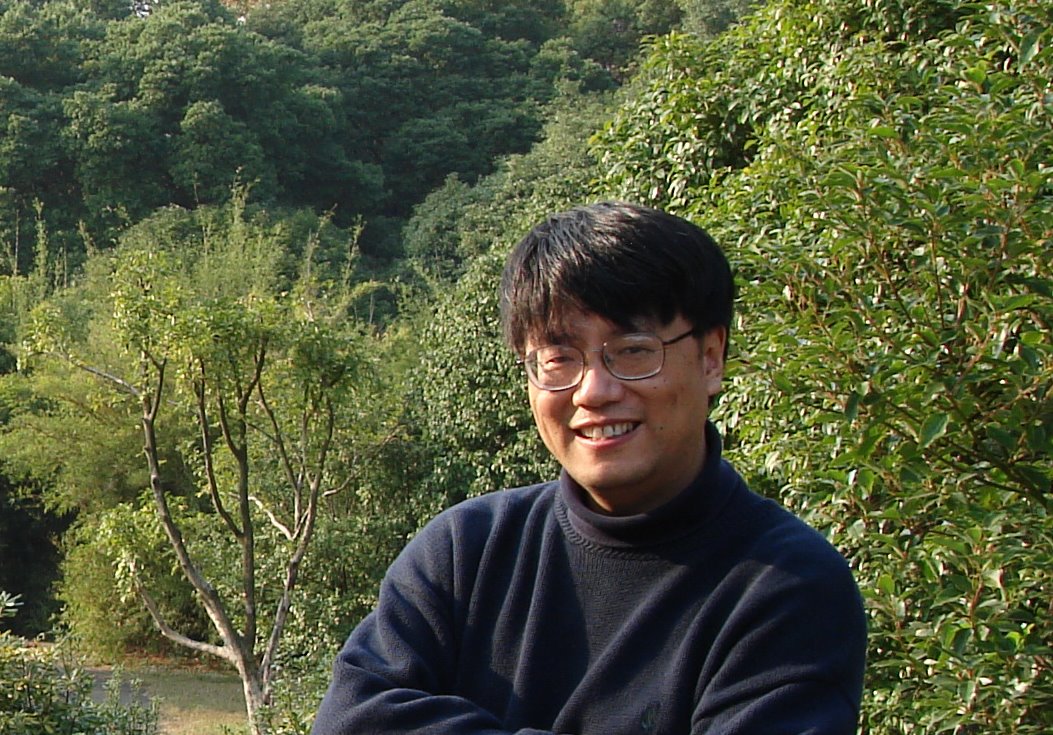Plenary Talks
Small Sample Correlation Mining in Massive Data Sets, by Alfred O. Hero III
Mon, Dec 16, 2013, 9:00 am
Abstract: We live in an era of large networks generating lots of data whose topologies are important but are only partially known to us. Detection of communities in such networks involves hypothesis testing on nodes and edges. In many networks, edges reflect the existence of significant pairwise correlation or partial correlation between data generated at the nodes. When the thresholded sample correlation is used to construct the network this problem is called correlation mining. For small sample size and large number of nodes there may be many false positives that prevent accurate discovery of topology and community structure. This talk will review the correlation mining problem and present applications in genomics, computational neuroscience, and the analysis of financial time series.
 Bio:
Alfred O. Hero III received the B.S. (summa cum laude) from Boston University (1980) and the Ph.D from Princeton University (1984), both in Electrical Engineering. Since 1984 he has been with the University of Michigan, Ann Arbor, where he is the R. Jamison and Betty Williams Professor of Engineering. His primary appointment is in the Department of Electrical Engineering and Computer Science and he also has appointments, by courtesy, in the Department of Biomedical Engineering and the Department of Statistics. In 2008 he was awarded the Digiteo Chaire d'Excellence, sponsored by Digiteo Research Park in Paris, located at the Ecole Superieure d'Electricite, Gif-sur-Yvette, France. He is a Fellow of the Institute of Electrical and Electronics Engineers (IEEE) and several of his research articles have recieved best paper awards. Alfred Hero was awarded the University of Michigan Distinguished Faculty Achievement Award (2011). He received the IEEE Signal Processing Society Meritorious Service Award (1998) and the IEEE Third Millenium Medal (2000). Alfred Hero was President of the IEEE Signal Processing Society (2006-2008) and was on the Board of Directors of the IEEE (2009-2011) where he served as Director of Division IX (Signals and Applications).
Bio:
Alfred O. Hero III received the B.S. (summa cum laude) from Boston University (1980) and the Ph.D from Princeton University (1984), both in Electrical Engineering. Since 1984 he has been with the University of Michigan, Ann Arbor, where he is the R. Jamison and Betty Williams Professor of Engineering. His primary appointment is in the Department of Electrical Engineering and Computer Science and he also has appointments, by courtesy, in the Department of Biomedical Engineering and the Department of Statistics. In 2008 he was awarded the Digiteo Chaire d'Excellence, sponsored by Digiteo Research Park in Paris, located at the Ecole Superieure d'Electricite, Gif-sur-Yvette, France. He is a Fellow of the Institute of Electrical and Electronics Engineers (IEEE) and several of his research articles have recieved best paper awards. Alfred Hero was awarded the University of Michigan Distinguished Faculty Achievement Award (2011). He received the IEEE Signal Processing Society Meritorious Service Award (1998) and the IEEE Third Millenium Medal (2000). Alfred Hero was President of the IEEE Signal Processing Society (2006-2008) and was on the Board of Directors of the IEEE (2009-2011) where he served as Director of Division IX (Signals and Applications).
Alfred Hero's recent research interests are in statistical signal processing, machine learning and the analysis of high dimensional spatio-temporal data. Of particular interest are applications to networks, including social networks, multi-modal sensing and tracking, database indexing and retrieval, imaging, and genomic signal processing.
Alternating Direction Optimization for Imaging and Machine Learning Problems, by Mário A. T. Figueiredo
Mon, Dec 16, 2013, 1:00 pm
Abstract: This talk will review our recent work on the application of the alternating direction method of multipliers (ADMM) to several imaging inverse problems. We will show how ADMM provides an efficient and modular optimization tool, which allows addressing a wide variety of problems (namely, image restoration and reconstruction, under Gaussian, Poissonian, or multiplicative noise) using several different types of regularizers (such as total variation, frame-based analysis, frame-based synthesis, or hybrid/balanced analysis-synthesis regularization), and formulations (constrained or unconstrained optimization). We will describe very recent work on the use of ADMM for blind deconvolution and in dealing efficiently with non-periodic boundary conditions. Finally (time permitting), we will also show how ADMM can be used to efficiently perform maximum a posteriori inference in probabilistic graphical models.
 Bio:
Mário A. T. Figueiredo received MSc and PhD degrees in electrical and computer engineering, both from Instituto Superior Técnico (IST), the engineering school of the Technical University of Lisbon (TU Lisbon), Portugal, in 1990 and 1994. Since 1994, he has been with the faculty of the Department of Electrical and Computer Engineering, IST, where he is now a Professor. His research interests include image processing and analysis, pattern recognition, statistical learning, and optimization.
Bio:
Mário A. T. Figueiredo received MSc and PhD degrees in electrical and computer engineering, both from Instituto Superior Técnico (IST), the engineering school of the Technical University of Lisbon (TU Lisbon), Portugal, in 1990 and 1994. Since 1994, he has been with the faculty of the Department of Electrical and Computer Engineering, IST, where he is now a Professor. His research interests include image processing and analysis, pattern recognition, statistical learning, and optimization.
M. Figueiredo is a Fellow of the IEEE and of the IAPR and was member of the Image, Video, and Multidimensional Signal Processing Technical Committee of the IEEE Signal Processing Society. He received the 1995 Portuguese IBM Scientific Prize, the 2008 UTL/Santander-Totta Scientific Prize, and co-received the 2011 IEEE Signal Processing Best Paper Award, as well as several conference best paper awards. He is/was associate editor of several journals (namely, the IEEE Transactions on Image Processing and the IEEE Transactions on Pattern Analysis and Machine Intelligence) and a co-chair of the 2001 and 2003 Workshops on Energy Minimization Methods in Computer Vision and Pattern Recognition. He presented invited lectures in many conferences and workshops, and he served in the technical committees of many international conferences.
Convex Optimization in Radar and Array Imaging, by Thomas Strohmer
Tue, Dec 17, 2013, 9:00 am
Abstract: I will discuss several problems in radar and array imaging in which ideas from convex optimization have proven to be surprisingly efficient. In the first part of my talk I will analyze theoretically and numerically the performance of sparsity-exploiting algorithms for the detection of targets in the azimuth-range domain and in the azimuth-range-Doppler domain using MIMO radar. We consider two approaches that both combine some form of randomization with tools from compressive sensing. I will discuss benefits and limitations of the proposed methods, as well as some open problems. In the second part of my talk I will report on recent progress in array imaging when intensity-only measurements (the phase information is completely absent) are available. In particular, we will see that for certain types of random measurements an image can be recovered exactly from its intensity-only measurements by solving a convenient semidefinite program. Potential applications of this methodology, known as PhaseLift, in Terahertz imaging will be presented.
 Bio:
Thomas Strohmer received his M.S. and Ph.D. in Mathematics in 1991 and 1994 respectively from the University of Vienna, Austria. He was a Research Assistant at the Department of Mathematics, University of Vienna from 1991 to 1997. He spent one year as Erwin-Schroedinger fellow at the Department of Statistics at Stanford University and then joined the Department of Mathematics at the University of California in Davis in 1998, where he has been Full Professor since 2004. He has served as Vicechair for Graduate Matters at the Mathematics Department since 2007. He was a Visiting Professor at Stanford University, Technical University of Copenhagen, and the Technical University of Berlin. Thomas Strohmer was a principal investigator on numerous research projects sponsored by the NSF, ESF, DARPA, ARO, and AFOSR. He also serves as consultant to industry in the telecommunications and signal processing sector.
Bio:
Thomas Strohmer received his M.S. and Ph.D. in Mathematics in 1991 and 1994 respectively from the University of Vienna, Austria. He was a Research Assistant at the Department of Mathematics, University of Vienna from 1991 to 1997. He spent one year as Erwin-Schroedinger fellow at the Department of Statistics at Stanford University and then joined the Department of Mathematics at the University of California in Davis in 1998, where he has been Full Professor since 2004. He has served as Vicechair for Graduate Matters at the Mathematics Department since 2007. He was a Visiting Professor at Stanford University, Technical University of Copenhagen, and the Technical University of Berlin. Thomas Strohmer was a principal investigator on numerous research projects sponsored by the NSF, ESF, DARPA, ARO, and AFOSR. He also serves as consultant to industry in the telecommunications and signal processing sector.
Thomas Strohmer's research interests include applied harmonic analysis, numerical analysis, signal- and image processing, information theory, and communications. Part of his current work focuses on sparse representations and compressive sensing with applications in radar and imaging sciences.
Tensor Tools for Multi-Sensor Processing: Conceptual and Computational Advances, by Lieven De Lathauwer
Tue, Dec 17, 2013, 1:00 pm
Abstract:
For more than 20 years, decompositions of higher-order tensors have played a key role in research on independent component analysis and blind source separation. Nowadays tensors are intensively studied in many disciplines. They open up remarkable new possibilities in signal processing, array processing, data mining, machine learning, system modelling, scientific computing, statistics, wireless communication, audio and image processing, biomedical applications, bio-informatics,etc. On the other hand, tensor methods have firm roots in multilinear algebra, algebraic geometry, numerical mathematics and optimization.
We give a brief introduction to the subject and discuss new trends and perspectives. We pay special attention to new developments relevant for multi-sensor processing, in particular in signal separation. We also pay attention to the current progress in numerical multilinear algebra.
Bio:
Lieven De Lathauwer obtained the Master's degree in Electro-Mechanical Engineering and the Ph.D. degree in Applied Sciences from KU Leuven, in 1992 and 1997, respectively. From 2000 to 2007 he was Research Associate with the French Centre National de la Recherche Scientifique. Since 2007 he is Associate Professor with KU Leuven.
Lieven De Lathauwer's research concerns the development of tensor tools for engineering applications. This comprises a study of algebraic foundations, numerical algorithms, generic methods for signal processing and data analysis, and specific applications (mainly in biomedical engineering and wireless communication). He is Associate Editor of the SIAM Journal on Matrix Analysis and Applications and has served as Associate Editor for the IEEE Transactions on Signal Processing. He was organizing committee member for several international conferences in applied mathematics, signal processing and data analysis. He chaired Workshops on Tensor Decompositions and Applications (TDA 2010, TDA 2005).
Satellite Communications - Signal Processing Challenges, by Björn Ottersten
Wed, Dec 18, 2013, 9:00 am
Abstract: Communication systems via satellite provide an unprecedented coverage at low cost. However, satellite networks as a means of content delivery are meeting increased competition from terrestrial communication systems. To stay competitive, innovative, cost efficient and scalable satellite services providing multimedia delivery, mobile communication services, public safety communications, backhaul etc. must be developed. The efficient and reliable delivery of these services poses several technical challenges. We discuss how signal processing techniques can be used to address some of these challenges, including diversity techniques, advanced multi-channel transmission and reception schemes, interference mitigation, and cognitive satellite communications.
Bio:
Björn Ottersten was born in Stockholm, Sweden, in 1961. He received the M.S. degree in electrical engineering and applied physics from Linköping University, Linköping, Sweden, in 1986. In 1989 he received the Ph.D. degree in electrical engineering from Stanford University, Stanford, CA. Dr. Ottersten has held research positions at the Department of Electrical Engineering, Linköping University, the Information Systems Laboratory, Stanford University, the Katholieke Universiteit Leuven, Leuven, and the University of Luxembourg. During 96/97 Dr. Ottersten was Director of Research at ArrayComm Inc, a start-up in San Jose, California based on Ottersten's patented technology. He has co-authored journal papers that received the IEEE Signal Processing Society Best Paper Award in 1993, 2001, and 2006 and 3 IEEE conference papers receiving Best Paper Awards. In 1991 he was appointed Professor of Signal Processing at the Royal Institute of Technology (KTH), Stockholm. From 1992 to 2004 he was head of the department for Signals, Sensors, and Systems at KTH and from 2004 to 2008 he was dean of the School of Electrical Engineering at KTH. Currently, Dr. Ottersten is Director for the Interdisciplinary Centre for Security, Reliability and Trust at the University of Luxembourg. As Digital Champion of Luxembourg, he acts as an adviser to European Commissioner Neelie Kroes. Dr. Ottersten has served as Associate Editor for the IEEE Transactions on Signal Processing and on the editorial board of IEEE Signal Processing Magazine. He is currently editor in chief of EURASIP Signal Processing Journal and a member of the editorial board of EURASIP Journal of Applied Signal Processing. Dr. Ottersten is a Fellow of the IEEE and EURASIP. In 2011 he received the IEEE Signal Processing Society Technical Achievement Award. He is a first recipient of the European Research Council advanced research grant. His research interests include security and trust, reliable wireless communications, and statistical signal processing.
Cyber Attacks on a Power Grid and Counter Measures, by Lang Tong
Wed, Dec 18, 2013, 1:00 pm
Abstract: A defining feature of a smart grid is its ability to adapt to changing operating conditions and contingencies by leveraging advanced sensing, communication, and networking capabilities. However, relying networking for grid monitoring and real time operation comes with increasing security risks of cyber-attacks.In this talk, we consider cyber attacks on a power grid where an adversary manipulates analog and digital data with the goal of misleading the control center with an incorrect network topology and erroneous operating state. We present a number of attack mechanisms and counter measures.
 Bio:
Lang Tong is the Irwin and Joan Jacobs Chair Professor in Engineering at Cornell University and the site director of the Power Systems Engineering Research Center (PSERC). He received the B.E. degree from Tsinghua University, Beijing, P.R. China, and PhD degree in EE from the University of Notre Dame, Notre Dame. He was a Postdoctoral Research Affiliate at the Information Systems Laboratory, Stanford University.Lang Tong works in the general area of statistical inference, decisions, communications, and complex networks. His current research focuses on energy systems. He received the 2004 Best Paper Award from the IEEE Signal Processing Society, the 2004 Leonard G. Abraham Prize Paper Award from the IEEE Communications Society, and the 1993 Outstanding Young Author Award from the IEEE Circuits and Systems Society. He is also a coauthor of seven student paper awards. He is a Fellow of IEEE.
Bio:
Lang Tong is the Irwin and Joan Jacobs Chair Professor in Engineering at Cornell University and the site director of the Power Systems Engineering Research Center (PSERC). He received the B.E. degree from Tsinghua University, Beijing, P.R. China, and PhD degree in EE from the University of Notre Dame, Notre Dame. He was a Postdoctoral Research Affiliate at the Information Systems Laboratory, Stanford University.Lang Tong works in the general area of statistical inference, decisions, communications, and complex networks. His current research focuses on energy systems. He received the 2004 Best Paper Award from the IEEE Signal Processing Society, the 2004 Leonard G. Abraham Prize Paper Award from the IEEE Communications Society, and the 1993 Outstanding Young Author Award from the IEEE Circuits and Systems Society. He is also a coauthor of seven student paper awards. He is a Fellow of IEEE.
